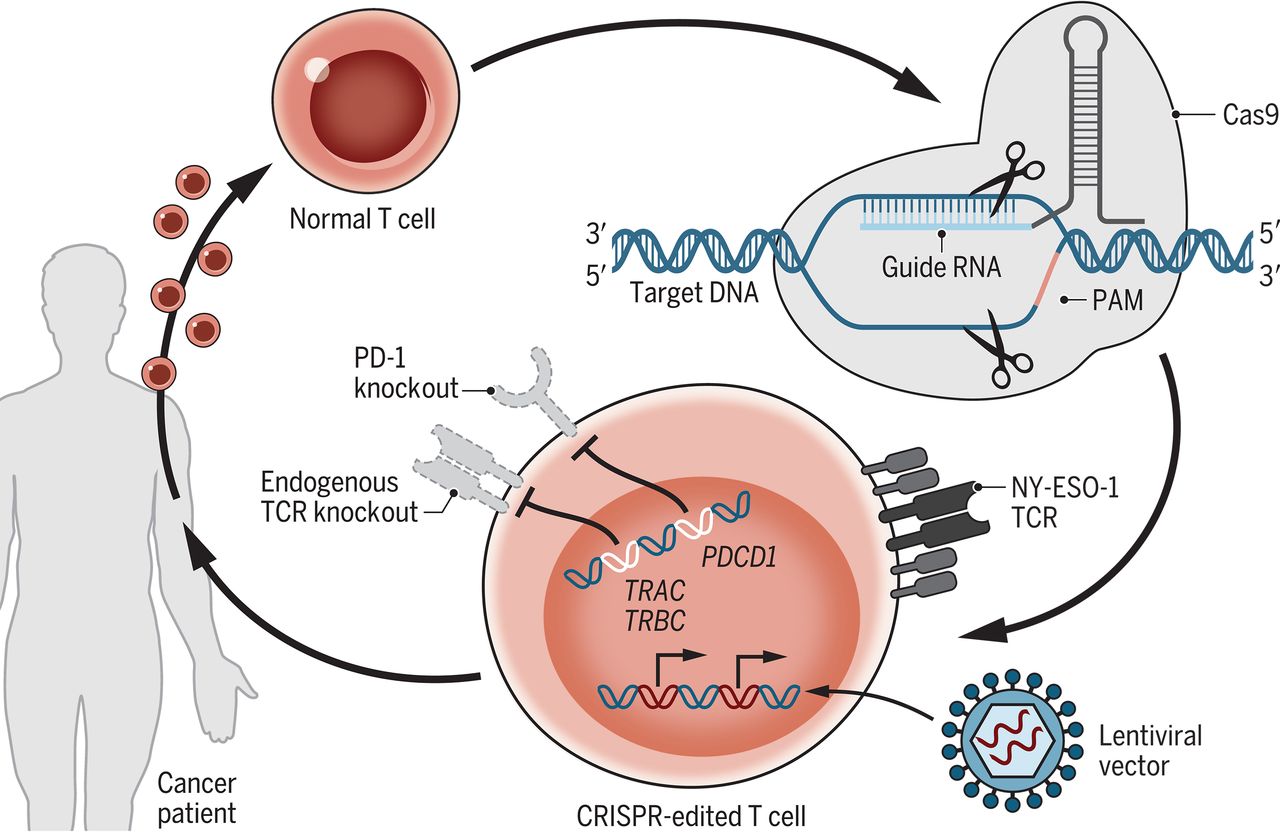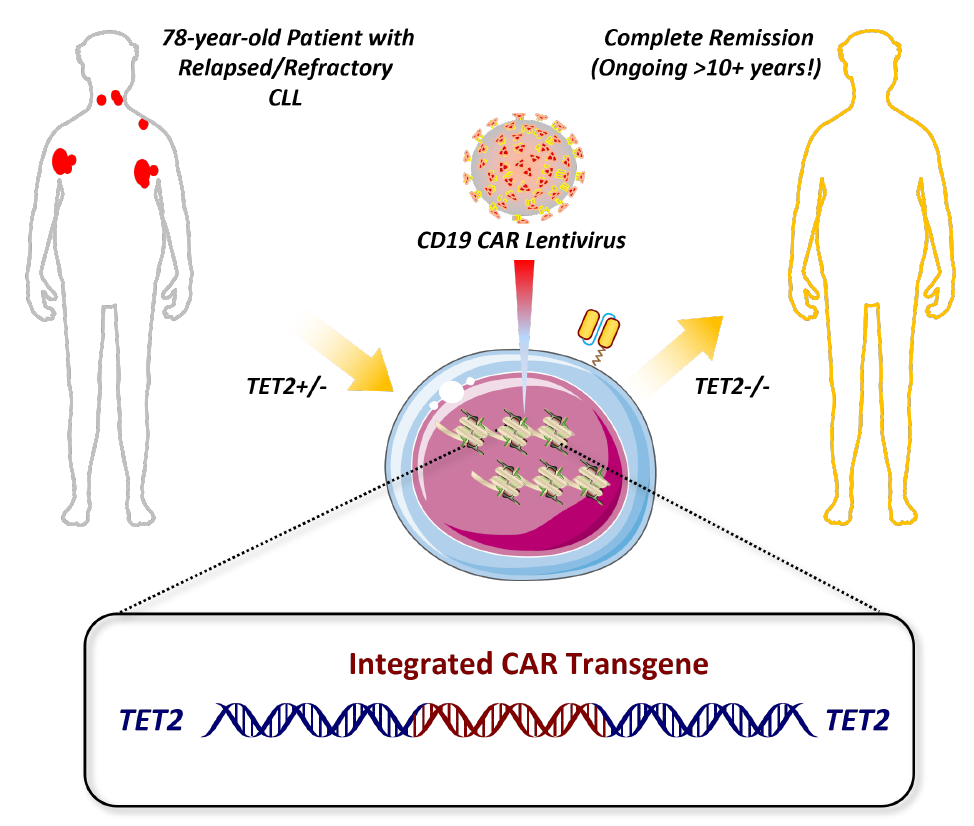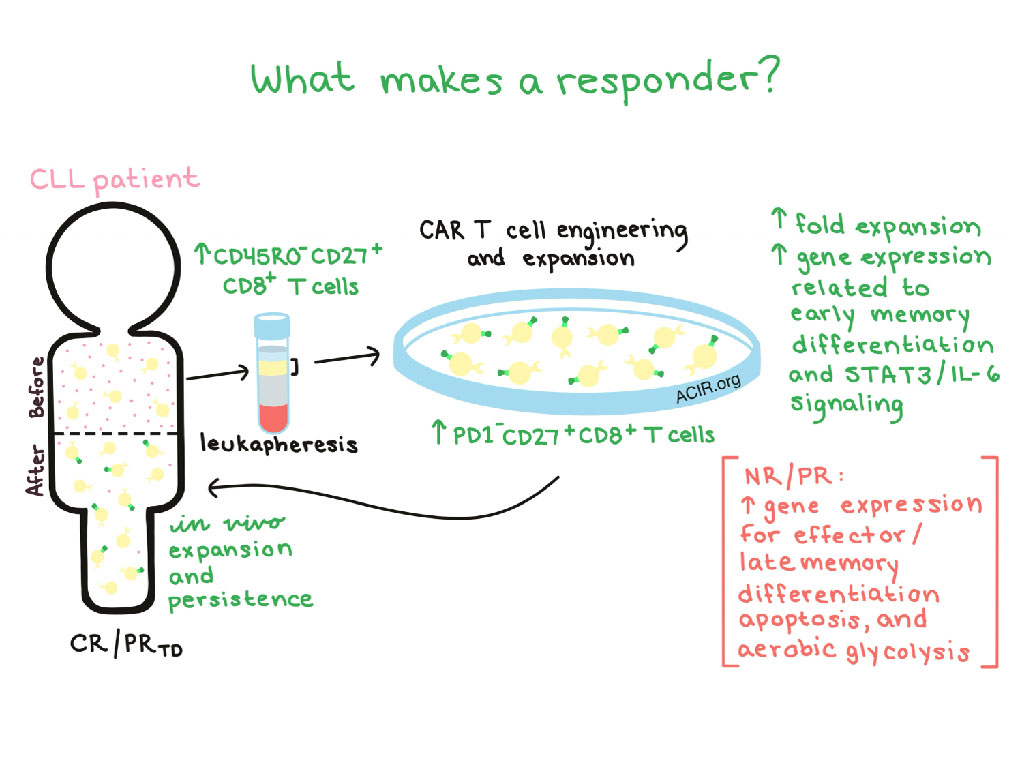OUR RESEARCH
The Fraietta Laboratory pioneers immunotherapy strategies, emphasizing the role of T cells in immunity, tumor biology, and host-cancer interactions. We use patient samples, advanced in vitro systems, and sophisticated animal models to enhance the functionality and adoptive transfer of T cells, whether endogenous or gene-modified. We aim to augment the potency of T cells against tumors and viral pathogens, while innovating techniques to optimize the immune environment for T cell activation.
The current direction within the laboratory is to address both basic and clinical research questions on the role of human T cells in mediating effective anti-tumor immune responses. Our specific areas of interest are as follows:
Next-generation Synthetic Biology
We use a variety of genetic engineering approaches to redirect T cells to recognize and destroy tumors. These efforts include the development of CARs and other synthetic immunoreceptors with more potent effector activity, enhanced durability and improved safety, compared to conventional cellular therapeutics. From these studies we have developed expertise in multiple aspects of genome editing to target the major mechanisms of resistance and toxicity in CAR T cell therapy. Notably, our laboratory co-led the groundbreaking study that pioneered the introduction of multiplex CRISPR/Cas9-edited T cells into humans for the first time.
Epigenetic Modulation of Immune Cell Function
Differentiation from naive precursors to memory and effector CD8+ T cells entails comprehensive chromatin modifications and gene expression reprogramming. Despite this, our understanding of the epigenetic landscape of functional and defective T cells in cancer remains incomplete. Our lab, which first demonstrated that a single epigenetically programmed CAR T cell could induce long-term remission in a patient with chronic lymphocytic leukemia, continues to explore this frontier. We investigate epigenetic influences on CAR T cell immunotherapy, harness epigenetic therapeutics to tackle resistance, and target genes for stable epigenetic programming to boost anti-tumor efficacy. This work holds promise for generating more potent antigen-specific T cells, thus enhancing adoptive cell transfer therapies.
Biomarkers of Response and Resistance to Cellular Immunotherapy
Our research in this area aims to identify critical factors for successful CAR T cell-mediated responses and to develop strategies for overcoming resistance in non-responsive subjects. These findings could lead to predictive biomarkers that guide CAR T cell therapy application, minimizing unnecessary costs and risks for non-responders. Given the complexities of CAR T cell generation and potential toxicity, identifying responsive patients can optimize personalized treatment. In support of these goals, Dr. Fraietta directs the Translational and Correlative Sciences Laboratory (TCSL) in the Center for Cellular Immunotherapies, where a primary objective is to translate these findings into actionable therapeutic strategies.



